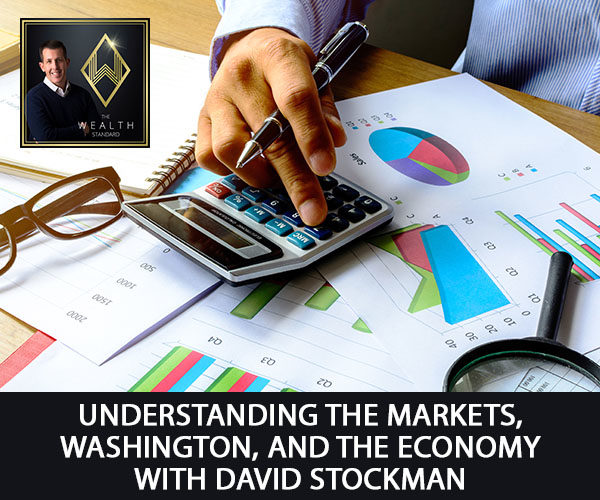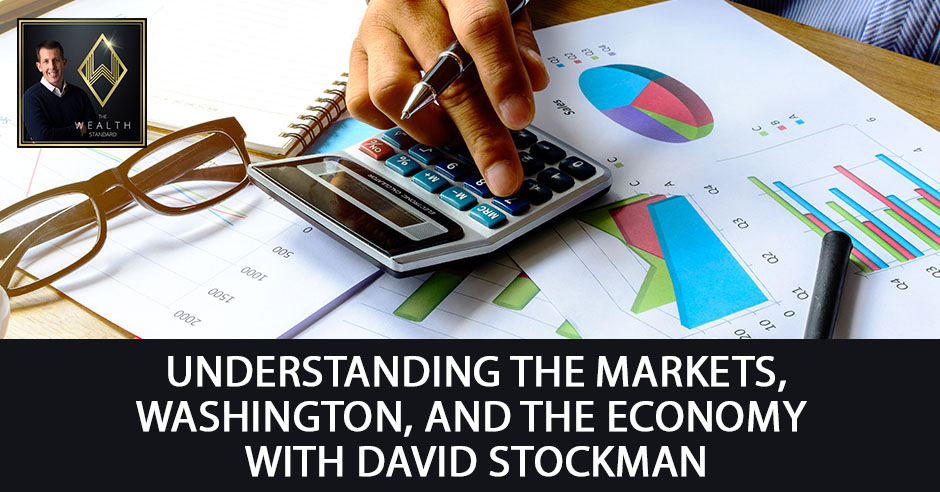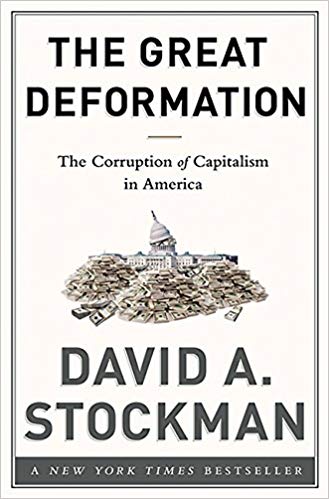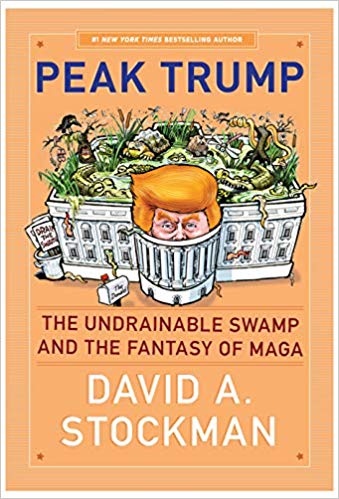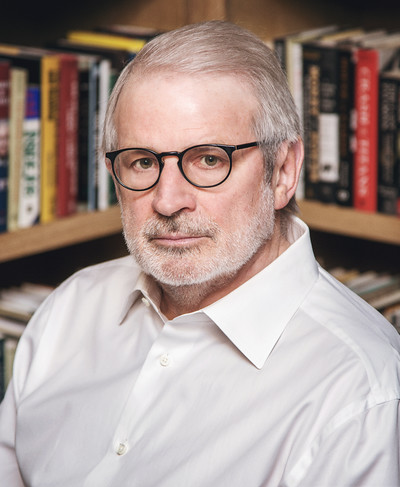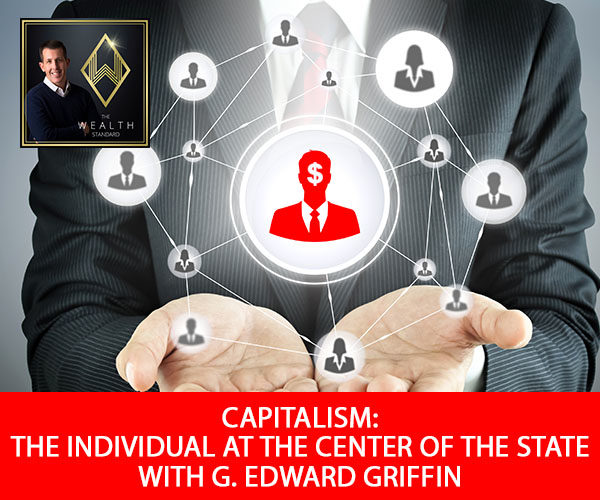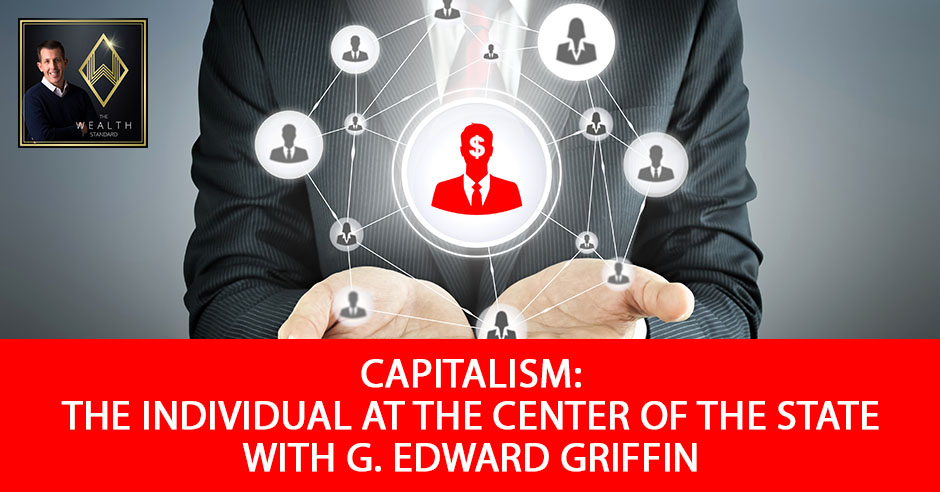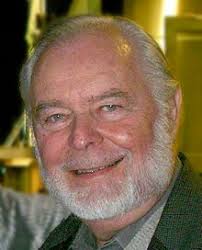Looking At The Markets, The Political Arena, And The World Economy with Dr. David Collum
Podcast: Play in new window | Download
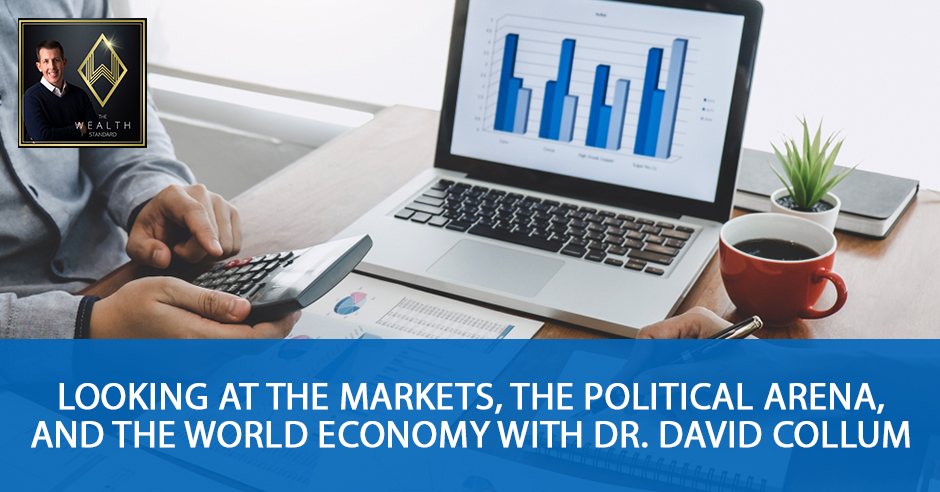
Let us talk about the free market as we dive into the insights of Dr. David Collum about the economy, our society, and our future. He is a Betty R. Miller Professor of Chemistry at Cornell University and is a regular and valued presence on the internet commenting on the financial system and the predicaments of our time. Dr. Collum gets philosophical and shares the paradigm and perspective he is using now to look at the markets, the political arena, and the world economy as a whole. Looking into our current situation, Dr. Collum shows how the economy has become about moving money and not goods and services, sharing better ways to distribute.
—
Watch the episode here:
Listen to the podcast here:
Looking At The Markets, The Political Arena, And The World Economy with Dr. David Collum
I have an interesting guest. We’re going to get into his story and what he does for living as well as something that I became intrigued with. His name is David Collum. He’s a professor at Cornell University. However, he writes a yearly economic review and has done for the last several years. You can find it on PeakProsperity.com, Chris Martenson’s and Adam Taggart’s blog. I’m excited to dive into his insight into the economy, into our society and what he sees as our future. David, welcome to the podcast.
I’m glad to be on.
I did a ton of research into what you wrote about in 2018. I happened to be going to a financial conference up in Whistler right after Ray Dalio was speaking, Howard Marks was speaking and there are a number of others. It helped me have a more refined perspective on what occurred in 2018. What I want to do is dive in briefly to your story because your economic review of things and your formal profession are a little bit different. Would you maybe explain how you came to start writing this annual review?
I didn’t pay any attention whatsoever to the stuff. I did chemistry. Around 1995, I started to pay some attention, some natural things start to develop some savings and you realize that it’s starting to matter. My dad and I used to chat about it when I was a kid. It was natural. As a raging bull for a while after that. In the late ‘90s, I started to notice that things are out of whack. In a fateful moment in July of ‘98, I decided to think for totally out of whack and I dumped half of my equities in cash. Almost to the day we went into that Asian crisis, I feel like I’m a half genius, half idiot. Down in the basement, I said, “If this comes back, I’m dumping the rest.” We came back and by mid ‘99 I had exited equities. There’s some phenomenon where once you go bearish, it’s hard to go on bearish again. Bulls get taught lessons much more dramatically than bears. By ‘99 I dumped all the equities right down to the last share and I was buying gold. I wouldn’t tell anyone though. It was embarrassing to buy gold.
Finally, I fessed up to a couple of people and they go, “Gold?” I said, “Yeah.” That paid off well over the next several years. It took a couple of years to not feel like an idiot though. I read more and more. I was at this chat board run by a guy named Doug Noland. We would chat and I wrote some stuff up at the end of the year and said, “Here’s how my year went and here’s what I’m thinking about.” One day I went viral. I left the containment field. I went from 200 clicks because that’s how many of us were there to quite a few thousand. It turns out one of the guys, named Jessie’s Café Américain, he had started the blog and he put it there. The next year I wrote it again and it got bigger. It was in 2008 or 2009, I decided to get serious. It was my 30th year of investing so I called it 30 Years of Investing from the Cheap Seats.
I laid it all out and all of a sudden, I started getting emails from people around the globe. The most shocking of which was the one I got from Iron Horn and he said, “This got passed to me,” and made some comments. From there, every year got bigger and broader. It had a natural growth rate to it. In 2018, it was about 160 pages. It’s hard to write 160 pages, but it’s hard to do it at the end of the year. I go into some lizard brain to do it. It goes to Zero Hedge, which spreads it around the globe. I’ll take on anything that catches my eye. If an antique catches my eye, I’ll write about antiques. If college finance catches my eye, I’ll write about it. There’s always a section on bonds, valuation and stuff like that.
I don’t necessarily count it by the pages because I’m reading it on a browser. I counted by how skinny that little icon is that you have to drag down. It’s quite a bit of work. Let me dive into a few things that you said. The first is you started to see things differently in the late ‘90s, which gave you a certain perspective. You acted on it. Maybe talk about where that philosophical base came from and maybe how it’s evolved into what that paradigm or perspective is you’re using to look at markets, look at the political arena and look at the world economy as a whole. Maybe you can go through that if you would.
I’m not a trader. I go into a position I usually average in slowly. It can take years. I probably make a trade a year even sometimes. I’m 100% about valuations. What happened to me in ‘98 is I concluded the valuations were at a point where historically win from that point. That’s still true to this day. Of all the cycles I’ve been through, I was in all bonds starting in 1980. People would say, “That was stupid.” I go, “I was making about 15%. It wasn’t that stupid.” When the crash in ’87 occurred, I was reading about it. I was not paying attention, but I realized I should be in equities. After the ‘87 crash, I moved into equities. I moved out again in ’99. I moved into gold, a lot of cash. I had a short position, which is a trade thing for me to do. I’ve done it twice. I will probably never do that again. It worked both times, but I know better now.
Winning doesn’t mean you’re not an idiot. I don’t blame myself. Every decision I make goes through the filter of it doesn’t work, will you forgive yourself? I started buying in ‘09 but I failed to buy not out of fear but out of greed. I started buying it. What a lot of people don’t know is we got down to approximately historical fair value in ’09. They think we are in some basement somewhere. We were nowhere near a basement. I document that exhaustedly especially in ‘18. I was positive that we would have to blow out a lot more. I remember Doug Cliggot saying, “I’ll be buying at this level and then it’ll drop. I will be bullish and at this level I wish I had saved my money.” That was the mode I was in.
When it jumped away from me I said, “This is 1931. We’re going back down again.” Nobody saw the levels of intervention coming. I know hundreds of people saw the mortgage crisis, hundreds and hundreds personally. I can’t find a single person that can point me to a single article where they said before this is over there will be trillions of dollars inserted into this. I can’t find that article anywhere. I failed to catch this road rage created by central banks. I’ve been largely not catching it. I was trading a lot of water and gold and I’m waiting for the next downswing. If my worldview is correct, it’s going to be a nasty one because they’ve blown up a gigantic bubble in both bonds and stocks. When those two start to blow up, I don’t want to be in the splash zone.
You had this perspective of things in ‘09 and then you saw the initial intervention mostly and then it gravitated to QE, how markets would respond short-term and the long-term.
The corporate buyback isn't capitalism. It presupposes that every other aspect of the economy is free market, which is not. Click To TweetFirst and foremost, I joined the club that turned out to be big and wrong that inflation would take hold. It hasn’t. There are people who say it’s there, but it’s not of the magnitude we thought and gold coming out of that bottom. It wasn’t in 2000. If I remember ‘13 where gold started paying dearly for not being right and that’s the thing I blew. I didn’t listen enough. I was like Lacy Hunt, Mike Shedlock, they were deflationists. I bought the bankers line that determined central banker can create inflation. Hunt and Shedlock are the two that I happen to remember well saying, “We are going to have deflation.” It didn’t sit with me and I think they’re correct.
It’s one of those things in hindsight. Everything makes sense as to this move and what it caused. I was looking at foresight when the move is taking place and seeing what impact it’s going to have. Sometimes it’s impossible because it could go a number of different directions. That was ‘09 and the world has changed quite a bit. How has your perspective changed in regard to your philosophy? Valuations no longer make much sense at all. You’ve had a lot of creative corporate finance going on which has continued to grow certain sectors. Ultimately, there are signs that there could be a correction. There are also signs that there might not, but maybe talk through what your experiences have been since 2009 and how your philosophy and perspective have been refined.
It hasn’t changed too much in the sense that of all the bubbles, this one is the one that seems most nonsensical to me. Every previous bubble, there was a good plot line, there was a good story. Whether it was 1929, 1999 or the 1960s where you can always say, “Here’s this revolutionary moment in history and things are rocking and this is why it’s exciting.” Even the South Sea Bubble, they all have a story. The story of this particular bubble is the Fed won’t let us down. That’s a stupid story because they’re incompetent most of the time. They are able to be competent in the short-term, but not able to stop the tides in the long-term and be a cause of a lot of pain when they don’t. I severely blame the Fed for ’09. They’re at ground zero for ‘09. It wasn’t crazy consumers. It was monetary policy.
How do you address those that are like, “The world would have gone to crap and were crumbled if the Fed didn’t intervene?” I hear that quite a bit.
I can live with that idea as long as those people acknowledge that aid has caused it. This is like Ted Bundy is killing people. The second thing I would want them to acknowledge before we would be on the same page is if they’ve been excessive since ‘09. It went off the cliff during Yellen’s term as Fed Chair. She had opportunities to start getting things back to normal and she failed. All excessive QE’s, it’s possible they can see disasters. They’re afraid of it. We now have a Fed who’s afraid of deflation, afraid of a recession. The Fed used to be the root cause of recessions and now they’re trying to avoid them at all costs. When the next one comes, it’s going to be bleak. We’ll have massive corporate debt. I can’t even fathom. Pension funds are underfunded at the top of a bubble. How do you get an underfunded pension when they’re all underfunded? The next brutal correction’s going to send them far into the basement that they’re going to break. They’re going to break right on schedule for the Boomers trying to retire. It’s going to be unpleasant. If the next recession comes and goes and it was garden variety, it’s wrong. I don’t know what to say, but we’re going to be in fetal position on the next one.
I’ve dedicated this season to the theme of capitalism. When you look at free market capitalism and what that philosophy entails and the principles, I would say a lot of economists have understood it for a while and then what it has become. Looking at how that word is used nowadays, there has never been a truly free market, capitalistic system. That’s where you have intervention particularly by central banks and how that does not allow for certain elements of capitalism, mainly failure to occur. It essentially creates unintended consequences and now it’s been creating unintended consequences for the better part of 100 years. If you look at where we’re at, I would say fundamentally when you look at a free market, we would have crashed. Banks would have been out of business. A lot of other businesses would have folded, but that would have been given rise to a more efficient monetary system potentially. We can’t know. It’s all speculation.
You look now at what you mentioned, the fundamentals there when you start to manipulate behavior, you’re essentially deferring the problem to the future. Who knows what that’s going to be? I look at some of the same concerns that you have, the unintended consequences are monstrous. Maybe talk about a few of the big ones. You mentioned pensions. You mentioned the corporate bond market which is massive. Maybe get into those few points which you talk about extensively in your review. Maybe talk about those couple of those main unintended consequences that a lot of this monetary theory has created.
I went completely back to the law on valuations. I presented approximately twenty different metrics of market valuations. They all point to the same story. That is regression to historical mean won’t be a 50% correction. I believe this time at 50% correction, things will break. I don’t know what. These are chaotic systems that you can’t predict. You can predict it, but it will be a mess though. What we have is the appearance of politics getting into the game. At least some of your readers have been paying attention to this modern monetary theory. I’ve tried to get my brain around it. It looks like total nonsense to me. In theory, it’s fine. In practice, it looks like a disaster. It emerged in the context of a budget deficit that’s running 7% or 8% a year. We know in the GDP is running at 2.5% over several years and the budget deficit is running at 7% or 8% that you’re in a death spiral unless you turn it around. The market trends 300% while the GDP ran 30% to the extent everyone I know thinks over time they track. That’s not a good situation. That’s the famous Buffett indicator.
What we’re going to see in the 2020 election, politicians always promise free stuff, but you will be breathless with the level of free stuff being offered in 2020. Goofballs like AOC, Alexandra Ocasio-Cortez pulling the Democrats so far left that they’re socialists. I would never have thought there’d be people who were devout socialists in competency for high office. The rallying cry for the Democrats is going to be, “Wall Street got theirs in ‘09. It’s time for us to get ours.” That is going to be a catastrophic spark to cause problems that are almost unimaginable. I don’t know how to go there. If readers are interested, search justice Democrats. Go on an online search. You’ll find out there’s a coup going on within the Democratic Party and its real. I’ve seen videos of Ocasio-Cortez talking about how she got put into power and stuff like that. It’s a strange thing, the new guard of super liberals, super left wings. They are not trying to beat the Republicans. They’re trying to beat the Democrats. There’s a whole bunch of them. This is the real stuff. I wouldn’t have believed it but the first time I saw a presentation of it, there were videos attached showing people talking about it from the past.
What’s happening is there’s a powerful group who’s attempting to find Democrats in districts for which Republicans will never win. There are plenty of those which the people in the district are not happy with their representatives. They’re trying to knock the Democrats out at the primary. Ocasio-Cortez, AOC, is the de facto spokesperson for the Democratic Party. She’s got the microphone. It’s open mic night. She got elected with 15,000 votes in the primary. That’s where she got elected in the primary because she wasn’t going to lose the election. She’s going to lose the primary if she could. This Omar woman, I can’t remember her whole name. There’s about four for these freshman Democrats. This is the surreal part that people have to do a little deep diving. They were recruited by a casting call. They literally put out a call, Ocasio-Cortez said her brothers submitted her name and somehow it’s like they’re putting together a boy band or something. They’re putting together the Bangles and the plan is to start knocking off Democrats. I was wondering why Ocasio-Cortez was hammering the Democrats. She’s done some talks about that because she’s not against the Republicans. She is against the Democrats. This political move has massive implications for free-market economics.
It’s the first that I’ve heard of some of the points that you’re talking about. I look at what has essentially been a huge influx of capital, which I would say created the big bull run from ‘09 until even late 2018. It makes sense that you have a lot of economists at the helm there. You have Wall Street, which for better or for worse, they know how to manage money, they know how to make money and they understand the implications of losing money. You’re essentially saying that now, the influx isn’t going to go into the hands of Wall Street. It’s going to go into the hands of those that don’t understand even the fundamentals of things.

Economy: When you start to manipulate behavior, you’re essentially just deferring the problem to the future.
My tax guy told me I’m going to pay 10,000 more in taxes this year because of the new tax laws. I didn’t see this coming. Maybe I’m unique. I’ve got an expensive house, got big real estate. If that’s true, April 15th is not going to deliver checks to people. All of a sudden there’s going to be a completely unexpected slowdown. That’s not going to help. We mentioned that all the time, student debt’s destroying a generation. Corporate debt’s nuts, corporate debt’s in a massive bubble. If you start toppling corporate debt structures, that goes straight to the economy.
One of the stats in your report that surprised me was the majority of the Russell 2000 was in junk status.
Something like 50% of the debt. It’s even worse then. 50% of the debt in the S&P is right above junk. When you swept the junk, you set up triggers all over the credit markets because there’s plenty of holders that did by statute, by legality which can’t hold junk. Electric’s a piece of garbage. It’s gone around the drain. Deutsche Bank’s going around the drain. There are a lot of companies that are not bringing enough revenue to pay their debt service.
Everything in essence intertwined and connected even other countries. Whatever is going to be that trigger that starts to release the dominos, who knows? Pensions are catastrophic because of the interest that they’re using as part of their actuarial models, which are not realistic. You add the unfunded liabilities. It’s been surprising to me because we’re in Salt Lake. Goldman Sachs’ biggest office in the world is in Salt Lake. You also have a relatively high percentage of startups getting to certain capitalization levels, but they don’t make any money. They operate based on being able to receive different rounds of funding. You look at how business is being created these days. We have to operate on a profit and I have had developers poached for 40%, 50% more than I was paying them.
I can’t afford that because other companies get funding. They bid up the prices of labor. You see signals everywhere. I tended to be in your camp back in ’09 or 2010. I didn’t see what was coming. I look at, “Is there something else on the horizon that we don’t see coming?” It’s the technological innovations that could potentially impact efficiencies and prices in a deflationary manner. I look at what you’ve gone through and that’s why the 160 pages is incredible research. It’s not stating just talking points, but also the actual proof behind it. I definitely recommend anyone who’s reading this who has some level of insight to check out David’s 2018 report definitely. Looking at these concerns that you brought to the table, I haven’t necessarily looked at the impact of Justice Democrats.
Justice Democrats are political. You’ll find articles about this movement. Who knows what they’ll do? That’s why these risks have appeared, but something like 65% of the population is signing off on the ideas of socialism. Back in the ‘20s and ‘30s, society had got through this unbelievable industrial revolution. Society was trying to figure out how an industrial world should be organized. There were central planner types. These were the guys who were at risk of being called Trotsky types. At the time, it was a credible idea that you needed good central control of things in this world that we had entered. There are the free market guys who said, “No, free market capitalism is the way to go.”
One can make the argument that that FDR was about a big compromise where the free market guys basically said, “Let us do our thing and we’ll put safety nets underneath you.” You’d get welfare state beginning. It’s the reason why society does protect weak people at some level. The welfare may be viewed as pejorative, but it gets out of control. It’s not a bad idea. We’re entering a period where we’re going to be looking ahead to a new grand compromise because somehow capitalism hasn’t done itself a service. I’ve been fighting about share buybacks and how corrosive they are and stuff like that. I’ve concluded people don’t even understand what they do and don’t do. The most fundamental level of what a share buyback is, people don’t understand.
Share buyback was illegal, but Glass-Steagall came into place after the Great Depression. It’s down as well. What I’ve discovered in the months I’ve been doing this theme is we’ve never had capitalism. There are capitalistic ideas and principles, but there’s never been a system because the corporate buyback isn’t capitalism. It might be, but at the same time, it should presuppose that every other aspect of the economy is a free market, which is not. Interest rates were manipulated which allowed for the corporate world to capitalize on low-interest rates and finance buybacks. It doesn’t necessarily create productivity in the company. It keeps their valuations at the same level or higher.
One of the ways to look at it is if you have an economy that’s based on goods and services, then all boats rise. This is an economy that develops new ways to do things and people’s boats rise at different rates, but all boats rise. We brought prosperity to ourselves by being fairly free market-oriented. The monetary policy has turned our economy from one of providing goods and services to one of moving money. We turn on CNBC, you don’t hear about capitalism; you hear about finance. As the economy morphs from goods and services to finance, you morph to a zero-sum game economy because no one’s making any. You say, “Yes sir.” What are the biggies? Is Netflix the replacement for US Steel? Is Amazon even the replacement for Standard Oil? Is General Electric being replaced by Facebook? These are stupid ideas.
Now, as the economy becomes about moving money, not goods and services, the little guy’s getting killed. That’s the wealth inequality problem. We will solve the problem not by finding better ways to distribute wealth, we’re going to solve it. I’m not saying it’s a solution is what we’re going to do. We’re going to try to redistribute wealth and redistributing wealth doesn’t work well. An efficient economy has a way of distributing wealth such that it’s fair. It’s not necessarily benign, but it’s fair. The workers get their share. They’re not as skilled as maybe then the upper guys who spent years in college and doing smart things, but they get their share. By pricing capital cheaply, they basically priced labor out of the equation.
Now, it’s cheaper for McDonald’s to get robots than to hire people. I am a little worried that change is always good. People worried about what we are going to do with a buggy whip maker, with cars. They’ll find a way. We’ll figure that out. Change can also be quick that it causes problems. If you add hot water to an ice cube, it cracks. If you’ll let it warm, it slowly melts. Things adjust. If you get too far from equilibrium, you get avalanches, earthquakes and explosions. These are big displacements from equilibrium who are turning the equilibrium.
We brought prosperity to ourselves by being fairly free-market oriented. Click To TweetWhat’s the central mechanism for that balance? What should it be?
First and foremost, the missed opportunity is for the Fed to quit worrying about recessions and let the downturns go. Let the downturns keep shaking out the losers and leaving room for the winners. When I was a kid, my dad was a contractor. He worked in one area and he went into cement pumping. It was this big monster truck that pumped up seven floors. I said, “Why did you go into cement pumping?” He said, “You mean besides I can make money?” I said, “Why that one?” This must have been 1970 or something. He said, “It’s because the truck costs $350,000,” which back then was a pot of money. He says, “I can compete with any other contractor who has the capital to buy that truck. We can both be on the playing fields at the same time.” He says, “What I can’t compete with are wildcatters who come in, undercut my prices and put us both out of business simultaneously.” Making capital precious keeps the meatballs out of the game. It keeps shaking out the losers and keeps the winners. It keeps the honest businessmen, the efficient businessmen in the game. Right now, we’ve got all these businesses that would not exist if we weren’t giving them credit and that is a problem.
That’s also what they consider as the solution where a lot of these technologies are ultimately to make life cheaper, make life better, make life more efficient and solve the world’s electricity issues and food issues. It’s both sides of the argument. What I’m saying is what’s in the middle balancing it all out? Like you said about water, if you go too cold, something happens. If you go too warm, something happens. Who is there dialing the temperature?
It’s the rate of change. Every once in a while, you have a small earthquake. You never get them anymore. If you go for 100 years in California without a serious earthquake, you’re about to get your rear kicked. This is where I blamed the Fed. They kept trying to avoid the corrective measures that would have kept it from getting too far from equilibrium. You asked me how I got into this. The field I’m in chemistry turns out to be complicated. Few people want to go near it. I was told that I couldn’t get funded and things like that. All sorts of contrarian things drove me into this field. What I discovered is absolutely everything that people thought they knew it was wrong, almost to the letter was wrong. We’ve gone through many projects after projects. Not only were the answers to the questions wrong, but the questions themselves were also wrong.
For 35 years, this has been my life. What it has taught me is experts can be dead wrong. I have a few superpowers, none of which you’d normally think of me. I’m not that smart. I have the ability to figure out what I don’t have to do and not doing it. That’s a superpower. The other thing I have the ability to do is to look at a bunch of experts who all tell me something and say, you’re full of crap. Few people have arrogance or the ability to resist the tractor beam, but I can look at a dozen central bankers who say, “This is what we should do,” and I go, “I don’t think so.” That’s a special crazy. I’m supposed to debate one of the vice presidents of one of the federal reserves. That’s a special crazy. It’s scheduled now I’m told on a podcast.
Is it one of the board members?
It’s a guy in St. Louis and it’ll be on Twitter, I guarantee you. It probably will be less than a debate. We’re going to talk about modern monetary theory. He invited himself to my podcast, curiously enough. He chimed in and said, “What about both of us?” At first, I don’t think he knew who he was. I said, “He’s the vice president; you got to say yes to this one.” We’re going to get on and discuss it. He entertains the idea of the modern monetary theory, which in practice is preposterous. I can explain it in theory, but I can’t explain it in practice. He’s an open-minded guy. I don’t think we’re going to clash. I also know that I can’t let it clash because it’s not fair to him. I could say, “Why did you instead do this?” In public he can’t respond to certain questions. I can say, “Isn’t Greenspan an idiot?” What is he going to say? I am going to have to be aware of the fact that I have to approach this differently.
Going back to like my original question, now I know we’re a lot of your philosophy has come from. You have stated theories. Human beings all have that element of fallibility where we form certain opinions, but it’s based on certain amounts of information, but not all information. I don’t know if anyone has all information, but you look at the world in that capacity and you realize that there’s a tremendous amount of trust for people that are considered so-called experts. You put yourself in a political role. You put yourself as part of the Federal Reserve. Suddenly the layers of power create this God-like mentality, but it also creates this incredible fear of being wrong.
That’s where a lot of the issues start because there could be positive results because of current monetary theory and what they’re trying to do. At the same time, they never addressed the consequences and there’s always going to be consequences. I can’t wait for that debate, but what a platform to try to have a discussion with an insider at the Federal Reserve on MMT, which is excellent. At the same time, it’s a modern monetary theory. Calling the question does monetary theory in general and what it does because right now it doesn’t make sense. Maybe you can explain this briefly, but from what I understand, the difference is it’s a creation of money that’s not monetized. There’s no underlying asset. If the Fed prints money, they buy a mortgage or they buy a bond or they buy a treasury. They buy something. This buys nothing.
The modern monetary theory has one of the premises that deficits don’t matter.
There is no debt. You’re never going to have debt. You could print your way out of a deficit.

Economy: At the time, it was a credible idea that you needed good central control of things in this world that we had entered. Then there’s the free market guys who said free market capitalism is the way to go.
We talked about this many years ago. It is actually about 100 years old. We said, “In theory, the government doesn’t have to tax us at all. They can spend the money created with help from the Central Bank.” What happens is the cost of government shows up as inflation and it erodes your spending power as a tax. There are a lot of problems with this, one of which is that inflation is called a hidden tax. I want the taxes to be in plain sight, so we understand what it is we’re being taxed. The real problem is they make this assertion that taxes are to control the money supply. The claim they make is you spend the money and then you tax to pull that money back. It becomes a chicken and the egg if you’re not careful. Some say, “We’re already doing this, why do you care?” It is also this dismissal of government spending is rampant in that community.
Their idea to curb inflation is up to Congress to curb spending. When was the last time you saw them do that? That in practice goes nuts. When was the last time a guy stood up and said, “We’re going to have an inflation problem? As your senator, I’m proposing a bill that will cut jobs.” That’s not going to happen. It’s a stupid idea. Once in a while, they say something stupendously stupid. For a while it can sound rational. All of sudden they say something that’s mind-bogglingly stupid. I go, “You guys are making it up now.” It’s getting a lot of negative press. In theory, the tax against Larry Summers and Frogman even of all people are fighting it. They’ve shown up at the moment when our deficits look unsustainable. Along comes this theory that’s 100 years old that says, “Deficits don’t matter. Don’t worry about it.”
It’s not a coincidence. This has been fascinating. I wanted to see what your insight is and your philosophy around how you view you view things. Hopefully, the audience got something out of it. In the past, we’ve talked extensively about a lot of the issues we’ve briefly touched on. These are issues that are results. Those results have a cause. The cause is where to start, not trying to change the results by themselves. I look at what the Federal Reserve has done since 1913 and what’s happened since then. You can see a lot of positive things, but also from a fundamental standpoint, you can see a lot of negative things. We’re at unprecedented levels when it comes to the signals of our markets and the levels we’re at whether it’s a debt or otherwise. It’s scary at the same time. It’s always that question in the back of my mind, “What am I not seeing? What do I don’t know that I don’t know?” That’s always been that X variable that’s part of the equation that few people can ever understand until it happens.
When Powell showed up, people who thought they knew Powell as chairman of the FOMC. People said he’s different. He doesn’t care about the markets. He’ll do what’s right and the markets are damned. If they have to correct, they have to correct. Two events occurred that were mind-boggling to the point that those who are likeminded were breathless. It was December 24th when the markets had corrected 16% after a 300% run. They corrected 16% and all of a sudden secretary of the Treasury Mnuchin who’s most famous for his wife. The president’s working group on capital and we go, “That’s not even a blip? What are we doing?”
It’s possible something was going on in the credit markets under the surface. I picked up little murmurs about that. In January, Powell found himself on stage with Yellen and Bernanke. The huge mistake he made was to be on that stage because you do not speak as the Fed jury. You don’t speak extemporaneously onstage. He monitored the idea that the Fed was ready to support the markets. All of a sudden, that was the birth of the Fed, what they call it. The idea the Fed will not let the markets drop. Those two events created this massive January rally that we’ve witnessed. What it did is it showed a lot of serious players that the Fed is weak.
They capitulate. I heard the same thing as far as Powell is concerned but imagine the pressure he’s under. That’s where everybody caves at a certain degree of pressure?
Imagine if the generals in World War II couldn’t imagine dropping guys on Omaha beach. How would that work? If you’re in that position, you can’t be weak. If you can’t make the tough calls, you don’t get to be there, but he is there. He blew it and he looks real. He did a 60 Minutes episode.
I didn’t know he was the one with Yellen and Bernanke. I knew about the 60 Minutes one.
He wasn’t explicitly lying, but it was a massive dose of it. It was a massive dose of highly-engineered statements. When they asked him about wealth inequality, whichever one I know says, “You got the point at the Fed on that.” That’s the whole financing the economy in spades. When they mentioned that to him, he said, “That’s not under our jurisdiction,” which is technically not a lie, but he caused it.
That’s a big thing. That’s one thing that’s scary. At the top levels, there’s little velocity. At the lower levels, that’s where all the velocity is. That’s the main catalyst for higher inflation, but it’s kept at bay because it’s at high levels. It’s interesting Powell’s involvement and what the cause of that is. In the end, if they’re the temperature creator that we’ve been referring to, it’s one of those things where the markets have rebounded because that was not what they were priced for at the end of 2018.
The indicators say we’re close to a recession. We were close in 2015. I said, “A recession is coming.” People laughed. By the end of the year, you can see we were flittering around 0%.
Human beings all have that element of fallibility where we form certain opinions that are based only on certain amounts of information. Click To TweetOn the yield curve, you are briefly inverted too. There are lots of lots of signs. I’m assuming you don’t sit down and take December off and write 160 pages about things. What are you using during the year to keep a pulse on what’s going on? What feeds are you following, what podcasts? What newsletters? What are you typically paying attention to?
Twitter is a gold mine. It’s big mind sync. If you can manage your Twitter feed better than me, you’re a better person. I happen to like Zero Hedge. You got to have a filter. Zero Hedge is great. I’ve had people tell me I’m an idiot for following Zero Hedge. 700 of my followers follow Zero Hedge. Everyone I know who I think is a big-brained Wall Street genius type, they all follow Zero Hedge. I would say Zero Hedge is indispensable. You can’t believe everything because they get stuff wrong, but they’re way ahead of people. Between those two, the stuff I can pick up on, the fly off Twitter is exciting.
Who are you following on Twitter specifically?
I’ve got a list of about 170 people who are on a list. I’ve got a much larger follower list, but I use my cold list and the guys I watch all the time. I watch it for Hussmann, Felder. My favorite person is Rudy Havenstein. He is a hoot-and-a-half. He’s the comic of Twitter. There are certain journalists I keep track of. Lisa Abramovich is good. Kate Long knows the bond market. Chris Whalen, there’s people coming across the feed all the time. Josh Crumb, Luke Roman. These are all people who are the junkies of financial Twitter, everyone knows their names. We’re all following the same people. They’re all entertaining guys. They don’t all agree, but they’re out there battling and posting. If you’re on Twitter and you’re there to share cooking recipes, it’s a colossal waste of time. I bang on the politics a lot.
When the Mueller report got summarized, I was having a field day for about a day where I was pointing out that 500,000 articles were written on Russian collusion, that is the number in a couple of years. There were people who are completely and utterly clueless and the media is completely and utterly clueless. Who knows about obstruction? The fact of the matter is they blew it. The Democrats blew it. They played their cuts. They believe their own press. It was hysterical to me. It’s like the Covington MAGA hat boy, they completely screwed that up. Every couple of months, they completely screw up a story. You got on Twitter and you’ll see their stupid stuff and you go, “I can’t believe those journalists are missing that.” It’s like a huge cocktail party where everyone’s drunk as a pig in Wall Street.
When’s the debate? What’s the date and time for that?
It’s sometime in April.
Do you have nothing definitive?
If you pay attention to my feed, I can guarantee you it’s going to be posted a few times. I don’t think it would be that exciting. It’d be archaic. I’m playing the straight man through this other guy. I don’t want to name because it hasn’t happened yet, but I think I’ll be poking. He’ll be explaining, I’ll be going, “What about this?” That’ll likely be the tenor. There’s the podcast himself. I like the guy.
Who’s the podcaster? Are you not allowed to say that either?
It’s Mac Abraham. We’ll see what happens. It shouldn’t be combative in my opinion. It should be a nice discussion.

Economy: There’s a tremendous amount of trust for people who are considered so-called experts.
When you have that type of contention, that never leads to a productive dialogue. I’m excited for you to do that. That should be an incredible experience. We will let our audience know that they can chime in or at least listen in. David, this has been an awesome discussion. Thanks for taking the time. Is the best way for people to follow you Twitter or are there other ways?
If you search my name, the top links are no longer chemistry. @DavidBCollum is my Twitter feed. You can find me there. Anyone who passes the minimum IQ test could find me because I’m in the Department of Chemistry at Cornell. If armed with Google, that is not enough information. You need help. I get emails from people, some rather stunning ones sometimes where I go, “I didn’t expect that one.” I am the Paris Hilton of finance now.
I thoroughly enjoyed reading through your material. Thank you for the research that you do. I know it’s making a difference. Hopefully, with the combined efforts of others that when things start to get a little haywire, there’s enough influence to make sure the decision at the bottom is a good one.
I’ve never been on Twitter through a downturn. That’s going to be fun because my Twitter experience has all been during this big tenure.
You have been bearing one of the biggest runs.
He’s calling you an idiot in public. I’ve been chastised. One guy said semi-complimentary. He said, “People listen to you. You should be more careful.” I said, “If they’re listening to me, they’re in trouble already.”
There are a lot of freedom fighters out there that understand a lot of fundamental principles and basics and see the nonsense in what’s going on. I see why. Typically, that theory isn’t valued. Correction ensues because hindsight is one of the best teachers.
I’ll throw out a lab pitch for your readers. Of the many things I’ve focused on and said, “That doesn’t make sense.” The Roth IRA is a bad idea and is relative to a regular IRA. It has got a mathematical hole in it that’s a monster. I’m looking at this and I figured out and then I go, “Why haven’t people figured this out?” I don’t know.
What is the hole specifically?
The hole is if you get taxed the same at the beginning or at the end, which is the Roth versus the regular. The results are the same. It’s 4th-grade math. Timing’s irrelevant. You are taxed 20% in front of 20% at the end. You’re getting to the penny the same amount. The problem is the Roth IRA, you voluntarily put in money, pay the tax on money at the marginal tax rate. You’re taking the top sliver off like a 35% tax rate for some people. You’re voluntarily paying the high tax rate, whereas in the regular, when you pull it out it comes out over the effective tax rate. It comes out over all the brackets. The effective tax rate uses around 12% to 15% lower.
What if it is higher in the future?
The cost of government shows up as inflation - called hidden tax - and it erodes your spending power as attacks. Click To TweetIt could be higher but that’s about no one knows. All I know is you’re giving up 12% to 15% upfront based on that logic. I want to ask him, “Why do they market the Roth?” He said, “You’re selling Corvettes, you sell the red one.”
It’s the bet of what you pay now versus the bet of what you pay in the future. The math gets the same rate. You’re paying the same. You can make a bet of not paying now, but then if taxes go up in the future, AOC says 70%.
Against the 70% but you’re still paying the effective tax rate at the end.
How do they calculate the effective tax rate in that regard?
There are actually calculators online that do it.
You put all the margins and it creates the effect.
It comes out starting at 0% and then 5% and goes up to 35%. No one’s effective tax rate is ever higher than their marginal by definition. They would have to drive the tax rate so high that the effective tax rate would soar and that’s almost impossible.
Change the tax code to tax withdrawals.
Even when the margin range was up 80%, 90%. Back in the early ‘60s, the effective rate was way lower.
There are trillions and trillions of dollars in qualified money. It comes down to at what rate you pull it out in the future. That’s the determining factor. David, thanks. This has been insightful. I appreciate your work. We’ll make sure that we get the word out, increase your listeners a little bit. Hopefully, as things start to manifest and a lot of the stuff that’s been deferred for a good part several years, that there’s enough influence out there. The culprits or those that created the whole thing are held accountable.
The system will break and then they’ll blame something else.

Economy: The fact of the matter is the Democrats blew it. They played their cuts. They believe their own press that itches.
Those guys will be long retired. Alan Greenspan, he’s on his last leg.
His reputation as has dropped. His legacy finally got uncovered.
Have you seen that new documentary? It’s relative to the bailouts and what’s occurred since then as far as what Greenspan’s reputation. It also has some interviews with Bernanke too supposedly. I can’t remember the name. Where we’re at as far as social media, as far as information and how quickly it transfers, accountability is a lot more probable these days, especially at those levels.
If the next recession we get through it without a big deal, then I would say that I called her on. I’d be doing me a call if we get through another one.
It’s one of those things where it’s an artificial manipulation. If it was a free market, there’s going to be a correction. There has to be. If you have a manipulation, then it papers over the problem.
You’re out of manipulation. At some point, you get to the end of the rope and the next one is going to do it. Has it started? I’m on record saying I think it started in December.
With that little correction?
When the NBER announces when the recession started, I’m on record saying, “I think it started in December.” Watching auto sales and stuff like that. When they start, they start ever in perceivably. You don’t notice it. There was a poll done in 1991. They asked 51 economists whether there would be a recession that year and all 51 said no. Not only there was there but when the poll was done we were in it. That shows you how hard it is to detect when it started. When did the avalanche start? You noticed when it finished.
There are many fundamental issues and if it goes, it’s going to go. The talks by Howard Marks are interesting and I’m not sure if you’ve read his book. He hits upon the emotional state of things, the feeling state of things collectively. There’s this fundamental variable, fear, greed or passiveness and what that has to do with market cycles. The book is Mastering the Market Cycle. That’s interesting because Twitter is probably given you a good pulse of what the sentiment is out there.
It is bi-modal. You got the Yahoo saying everything’s wonderful. You got the bear saying, “I think it started.”
I’m excited to see what happens. For those that are in the know, for those that are prepared to make certain decisions, it’s going to be a great opportunity. There’s going to be a lot of people that pay a dear price for it.
Important Links:
- David Collum
- Doug Noland
- Jessie’s Café Américain
- Zero Hedge
- @DavidBCollum – Twitter
- NBER
- Mastering the Market Cycle
- www.PeakProsperity.com
- https://www.PeakProsperity.com/Guest/David-Collum
- https://www.PeakProsperity.com/Blog/114635/2018-Year-Review
- https://Chemistry.Cornell.edu/David-B-Collum
- https://Twitter.com/DavidBCollum
About David Collum
 David Collum is the Betty R. Miller Professor of Chemistry at Cornell University and is a regular and valued presence on the internet commenting on the financial system and the predicaments of our time. David has contributed many Year in Review articles and podcasts to the Peak Prosperity community, all of which are available online at www.peakprosperity.com.
David Collum is the Betty R. Miller Professor of Chemistry at Cornell University and is a regular and valued presence on the internet commenting on the financial system and the predicaments of our time. David has contributed many Year in Review articles and podcasts to the Peak Prosperity community, all of which are available online at www.peakprosperity.com.

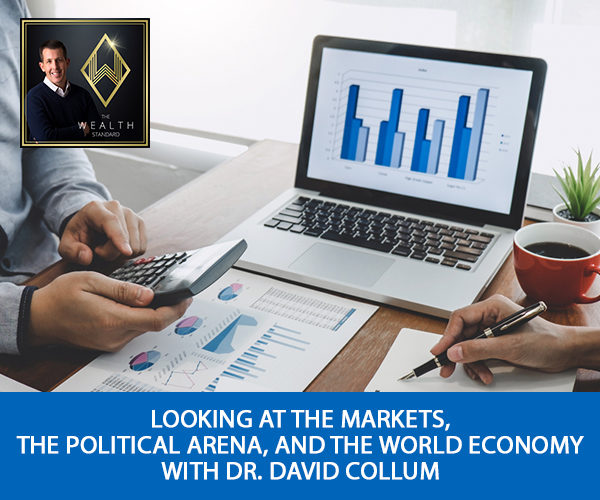
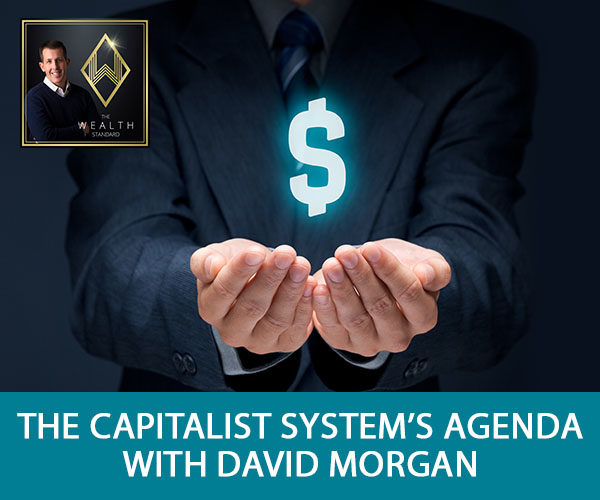
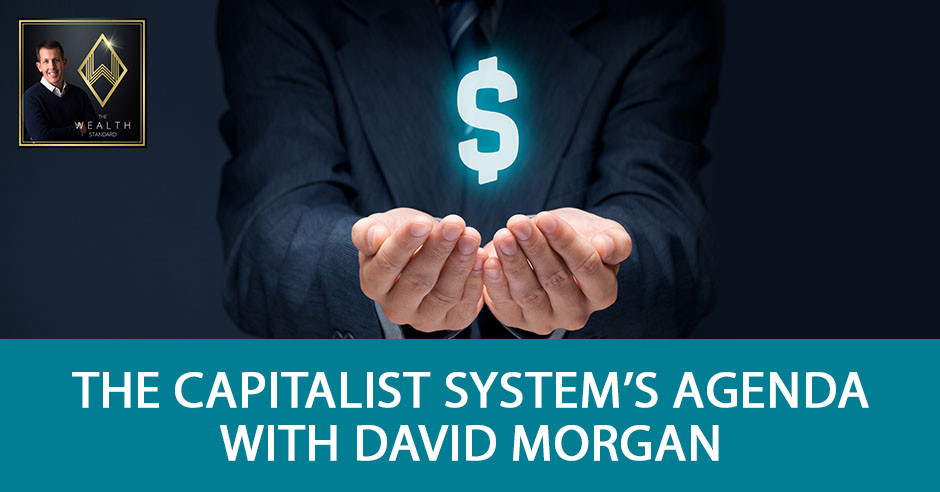
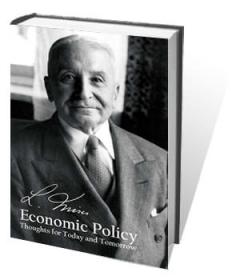





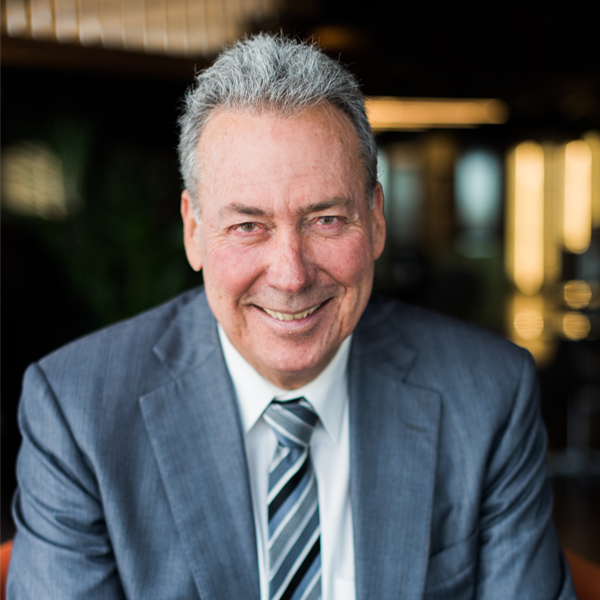
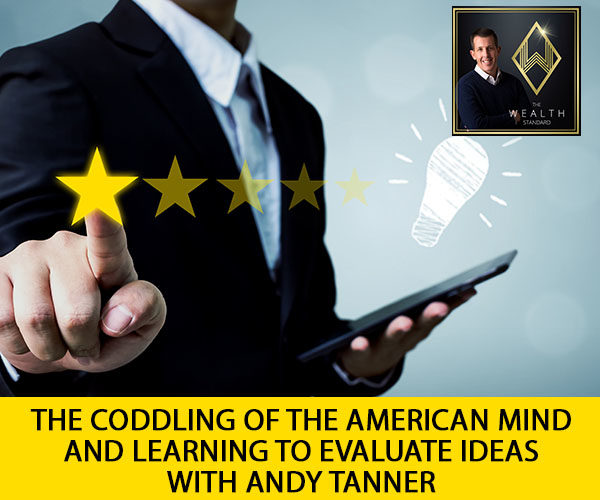
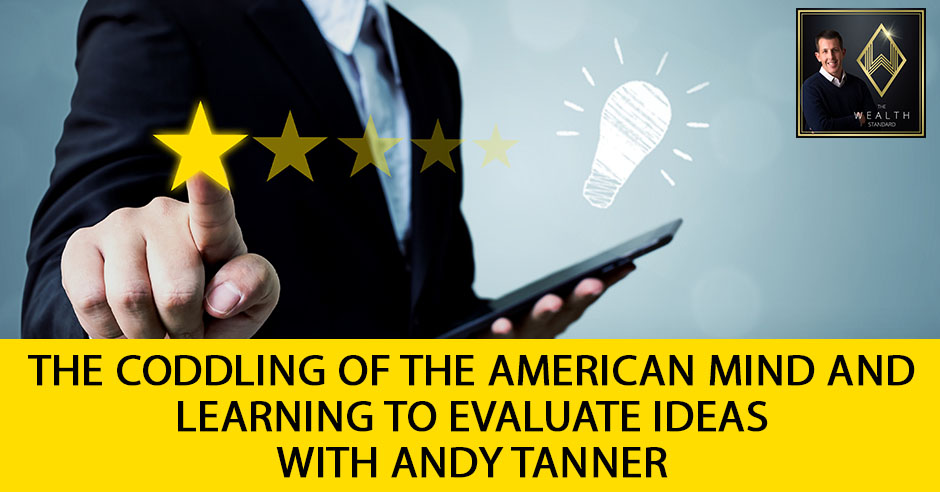
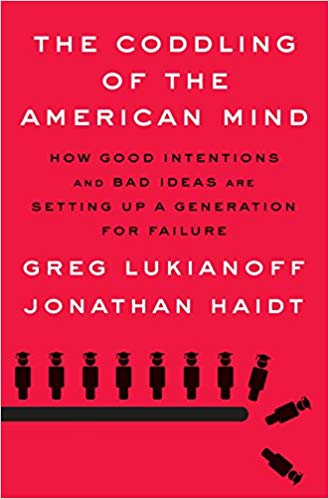


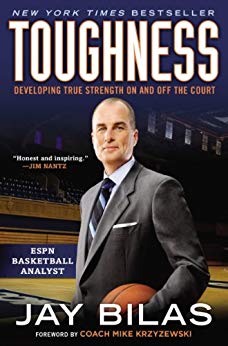
 Andy Tanner is a renowned paper assets expert and successful business owner and investor known for his ability to teach key techniques for stock options investing. In 2008, Andy was key in helping develop and launch Rich Dad’s Stock Success System, which teaches investors advanced technical trading techniques to profit from bull and bear markets. He serves as a coach to Rich Dad’s Stock Success System trainers and as the Rich Dad Advisor for Paper Assets. He is currently authoring an upcoming Rich Dad Advisor book on paper asset investing.
Andy Tanner is a renowned paper assets expert and successful business owner and investor known for his ability to teach key techniques for stock options investing. In 2008, Andy was key in helping develop and launch Rich Dad’s Stock Success System, which teaches investors advanced technical trading techniques to profit from bull and bear markets. He serves as a coach to Rich Dad’s Stock Success System trainers and as the Rich Dad Advisor for Paper Assets. He is currently authoring an upcoming Rich Dad Advisor book on paper asset investing.